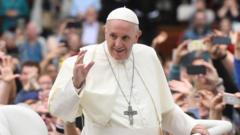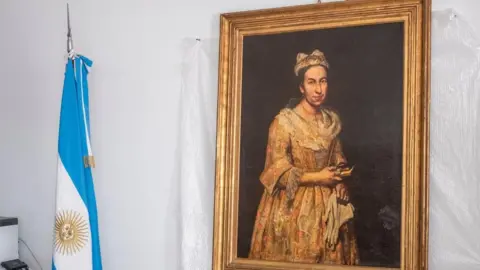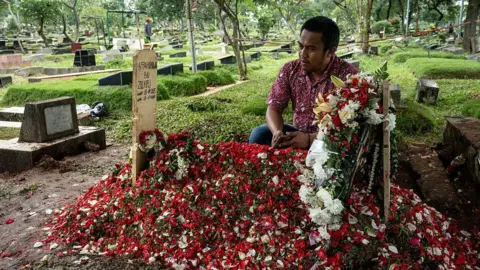In a moment of profound grief, the Vatican announced the passing of Pope Francis at the age of 88. Cardinal Kevin Farrell confirmed the news, stating, "This morning at 07:35 local time (05:35 GMT) the Bishop of Rome, Francis, returned to the home of the Father." His death raises waves of sorrow and reflection as tributes start pouring in from across the globe, celebrating the life and teachings of the first Latin American pope.
Pope Francis, whose birth name was Jorge Mario Bergoglio, had made a remarkable appearance just a week prior, wishing "Happy Easter" to a throng of worshippers in St. Peter's Square. Only recently, he had been released from the hospital after battling an infection that had led to double pneumonia. Despite his health struggles, he had significantly upheld the duties of his papacy until his final days.
Leaders around the world have expressed their condolences and respect for the pope, highlighting his deep commitment to humanitarian issues. The Archbishop of York, acting head of the Church of England, described him as a "holy man of God," embodying humility and service. U.S. Vice-President JD Vance conveyed his sympathies to Christians, especially poignant following their meeting on Easter Sunday. French President Emmanuel Macron noted that the pope consistently stood with the vulnerable, while Dutch Prime Minister Dick Schoof called him "a man of the people."
Pope Francis's last public display occurred on Easter Sunday, where he was seen waving to the crowds from his wheelchair at St. Peter's Basilica, offering words of hope and reflection. In his Easter blessing, delivered through a clergy member, he emphasized the essence of freedom in achieving peace, highlighting the pressing conflicts threatening human dignity worldwide.
With the passing of Pope Francis, the governance of the Church reverts to the College of Cardinals until a new pope is elected. The 252 Catholic cardinals, of whom 138 are eligible to vote, are set to converge on the Vatican to deliberate the future leadership of the Catholic Church.
Throughout his papacy, which featured significant reforms, Pope Francis broke new ground as the first non-European pope in centuries, as well as the first Jesuit to hold the papal office. Despite encountering skepticism, he maintained a broad appeal across various segments of the faithful and remained dedicated to implementing positive change within the Church. As the world reflects on his impactful life, Pope Francis's legacy as a shepherd of compassion and reform will undoubtedly endure.





















